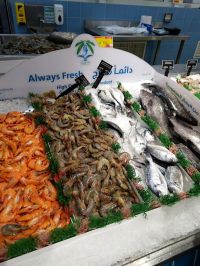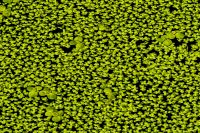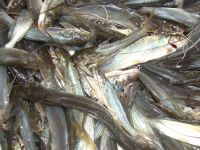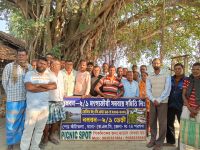Shrimp aquaculture in Saudi Arabia has evolved significantly since its inception in the 1990s, transitioning from freshwater tilapia farming to large-scale marine shrimp production, primarily focused on Penaeus vannamei. This shift was driven by market demand, environmental suitability, and the impact of disease outbreaks such as white spot syndrome. However, early development faced major biosecurity challenges, including inadequate regulation, limited local hatchery capacity, insufficient disease monitoring, and a lack of trained personnel.
In recent years, the Ministry of Environment, Water & Agriculture (MEWA) has undertaken a comprehensive reform of shrimp farm biosecurity, aligned with the country’s Vision 2030 objectives. This includes regulatory controls on live shrimp imports, development of disease monitoring infrastructure, biosecurity training, and enhanced collaboration with private sector and academic institutions. MEWA has also promoted technology transfer, workforce development, and sustainable hatchery expansion. While progress is evident, future priorities include improving local broodstock availability, expanding real-time disease diagnostics, and strengthening biosecurity human resource capacity to ensure long-term industry stability and resilience.
The increasing demand for cost-effective and sustainable aquafeeds has prompted interest in alternative protein sources to replace fishmeal. Wolffia globosa (duckweed), is a fast-growing, rootless duckweed with high protein content and favorable nutrient composition, offers significant potential as a feed ingredient in aquaculture. Studies conducted at the College of Fisheries, Central Agricultural University in Tripura, India, demonstrated the feasibility of using Wolffia as a primary feed for rohu fry, yielding promising growth and health outcomes comparable to those achieved with conventional formulated feeds.
Beyond its nutritional value, Wolffia contributes to environmental sustainability through phytoremediation, improving water quality in aquaculture systems, and reducing the reliance on fishmeal and chemical fertilisers. Challenges remain, particularly due to anti-nutritional factors common in plant-based feeds, but these can be mitigated through thermal and enzymatic treatments. With proper processing, Wolffia globosa emerges as a viable, eco-friendly protein source for aquaculture, supporting both profitability and environmental stewardship.
The Gangetic mystus (Mystus cavasius) is a small indigenous freshwater catfish valued for its taste and nutritional qualities, with high market demand across South Asia. This article offers a practical guide for farmers on the captive breeding and production of M. cavasius, encompassing key stages from broodstock management to grow-out culture. Captive production methods are critical for ensuring seed availability and enhancing the commercial viability of this species. The article outlines protocols for brood selection, hormone-induced breeding, egg fertilisation, larval rearing, and fingerling development, with emphasis on water quality, feed regimes, and optimal stocking densities.
Special attention is given to improving larval survival through early indoor rearing, proper husbandry, and the use of live and formulated feeds. The slow-growing nature of M. cavasius necessitates low-density stocking and extended grow-out periods, typically yielding less than 1 tonne/ha/year. Despite the modest productivity, the species commands strong regional demand at 30–40 g market size. The guide also addresses common health issues and preventive practices, stressing the importance of water quality and early disease intervention.
This article examines recent initiatives to rejuvenate primary Fisher Cooperative Societies (FCSs) in South 24 Parganas District, West Bengal, highlighting their critical role in advancing sustainable fisheries, rural livelihoods, and social protection. It outlines the structural, administrative, and policy frameworks that support FCS operations, particularly the government’s lease-based allocation of large freshwater bodies to cooperatives. The article also reviews the election procedures conducted under the West Bengal Cooperative Societies Act to reconstitute governance in 43 active societies, ensuring compliance and eligibility for state support.
Through detailed case data and programme reports, the article documents the outcomes of targeted schemes such as input distribution for sewage-fed and large-scale fish culture, equipment provisioning, pension benefits, and capacity-building training. It emphasises the cooperative model's effectiveness in managing natural resources, strengthening community self-governance, and enhancing productivity. With a focus on practical reforms and institutional accountability, the South 24 Parganas experience offers insights into scaling cooperative-led fisheries development in similar socio-ecological contexts.
India's brackishwater aquaculture sector, particularly shrimp farming, holds immense potential but remains largely underexploited despite its significant contribution to global shrimp production and exports. Small-scale farmers, who form the backbone of this industry, face substantial challenges including limited access to credit and insurance, poor management practices, and vulnerability to disease outbreaks and extreme weather events. These risks lead to considerable crop losses and hinder the sector's stability and growth. This article underscores the critical role of crop insurance as a vital risk management tool to mitigate these financial losses, secure livelihoods, and promote the sustainable development of shrimp aquaculture in India.
This article details the risks associated with shrimp farming, such as climatic events, disease outbreaks, market volatility, and financial constraints. It also outlines comprehensive risk management strategies, including the adoption of better management practices, biosecurity measures, and contingency planning. The article identifies key challenges faced by both farmers and insurers and presents innovative solutions and strategic recommendations for developing more effective and inclusive shrimp crop insurance products.




